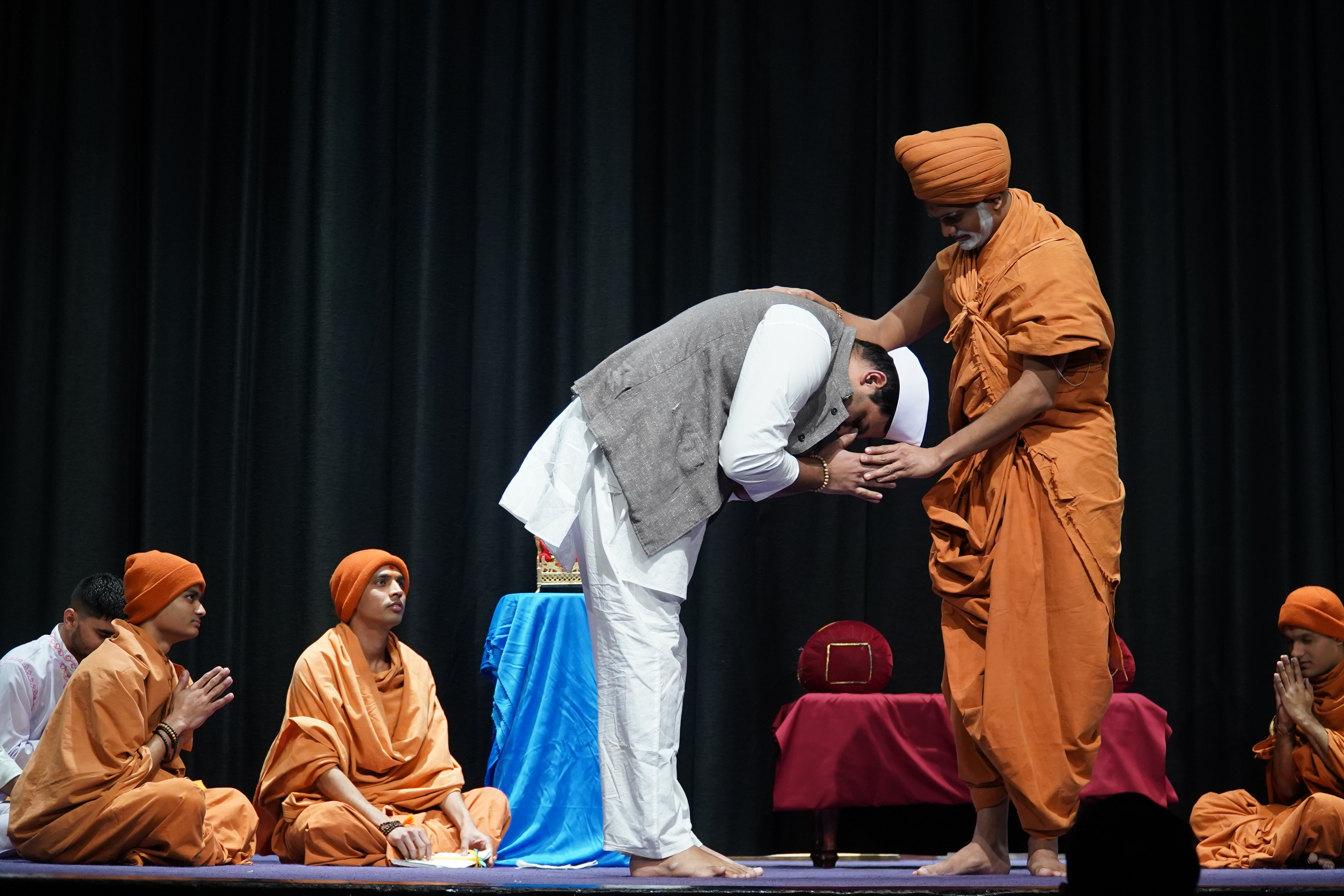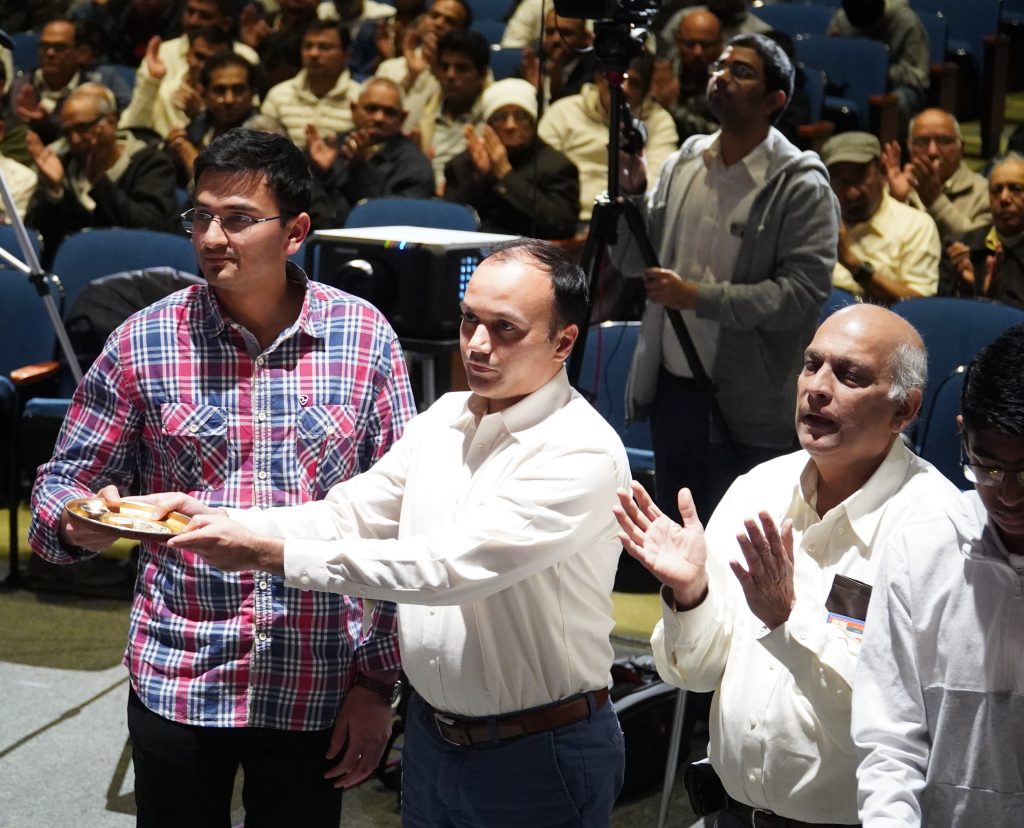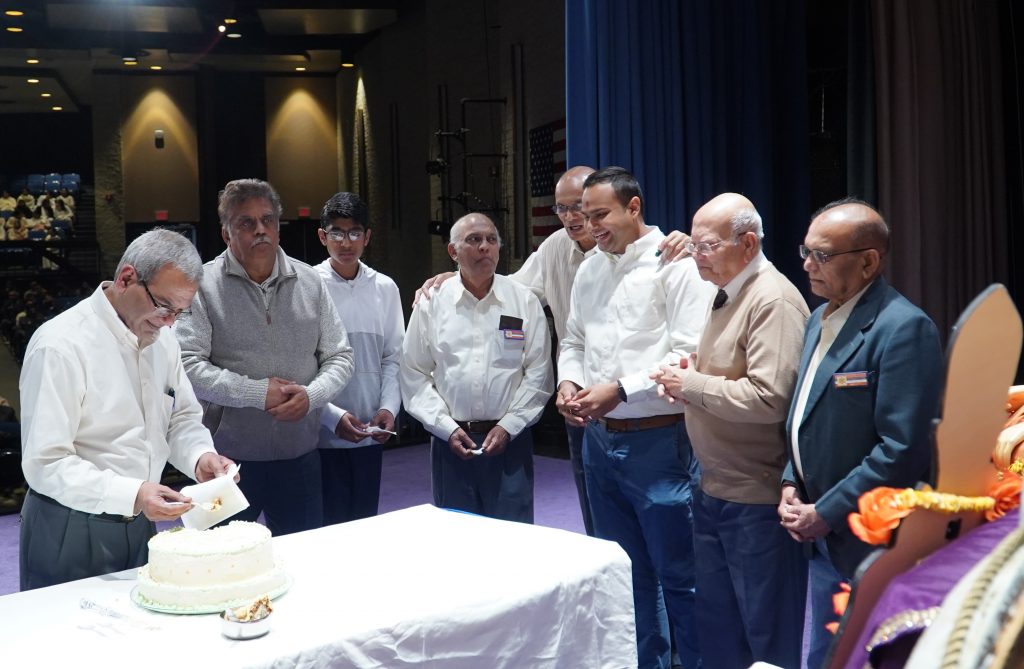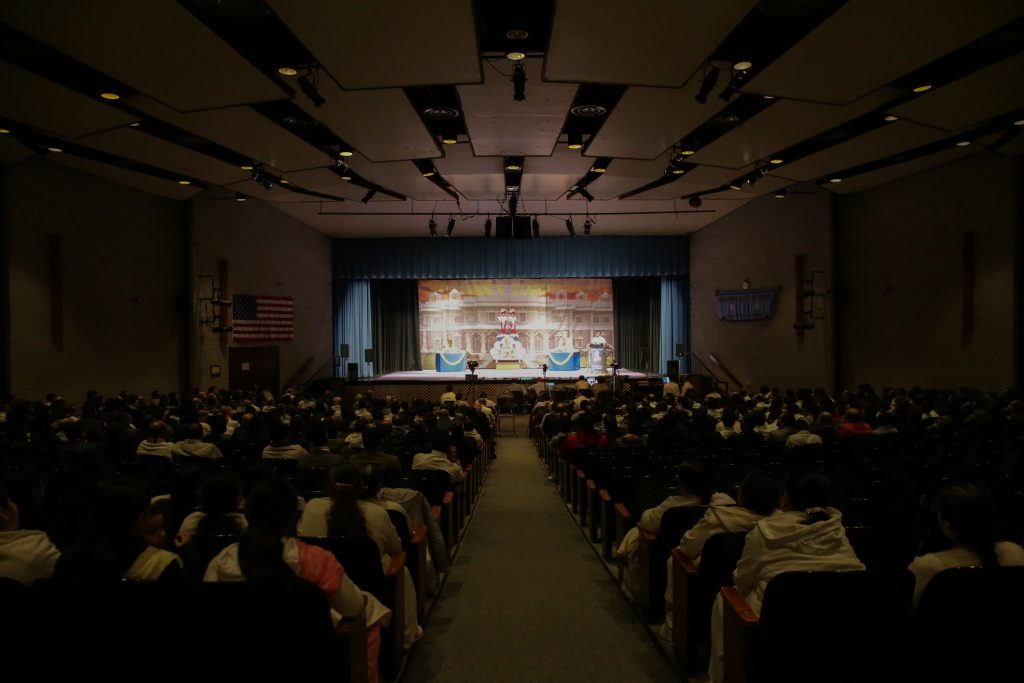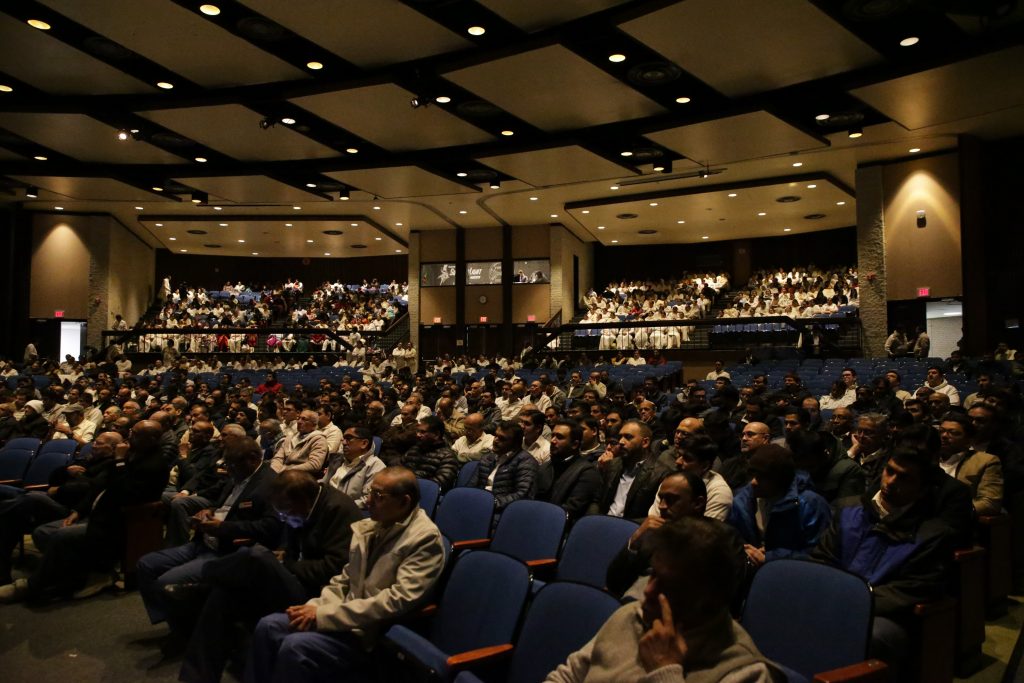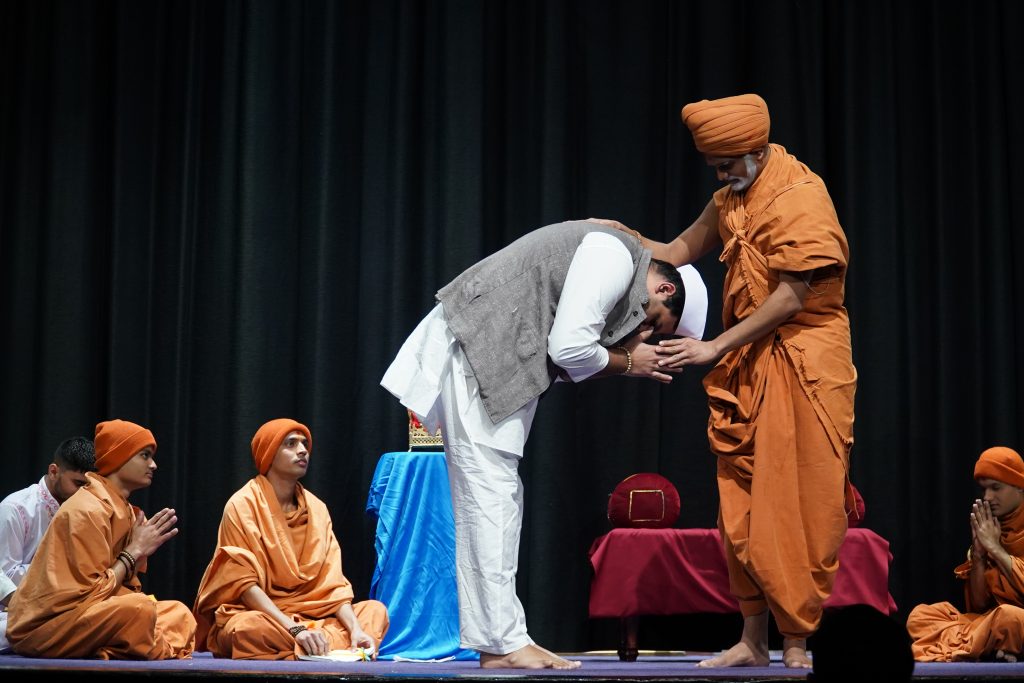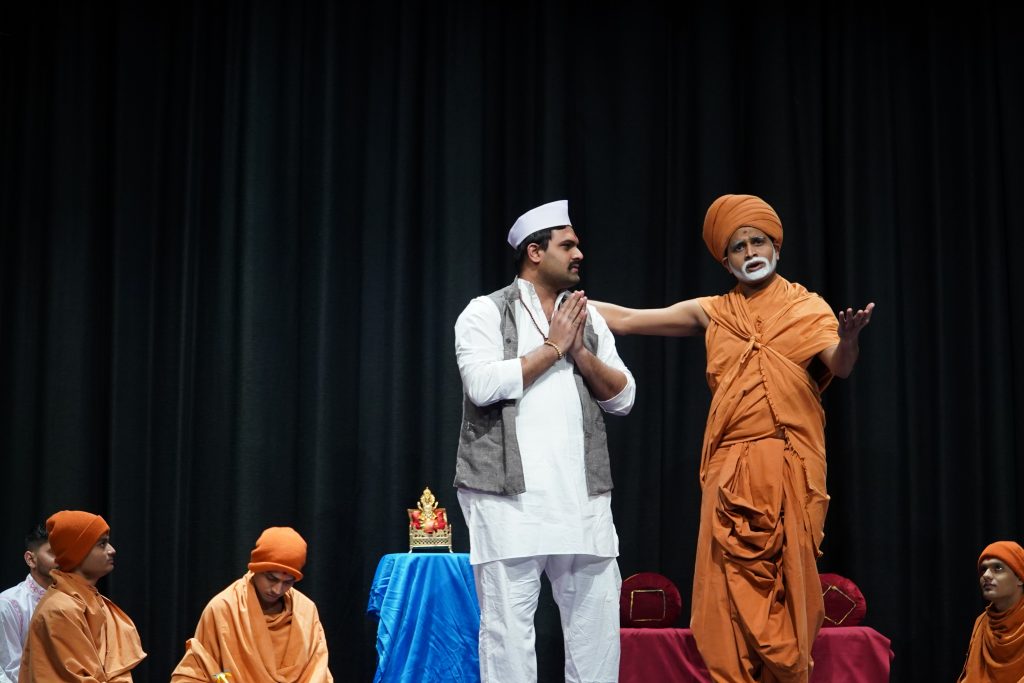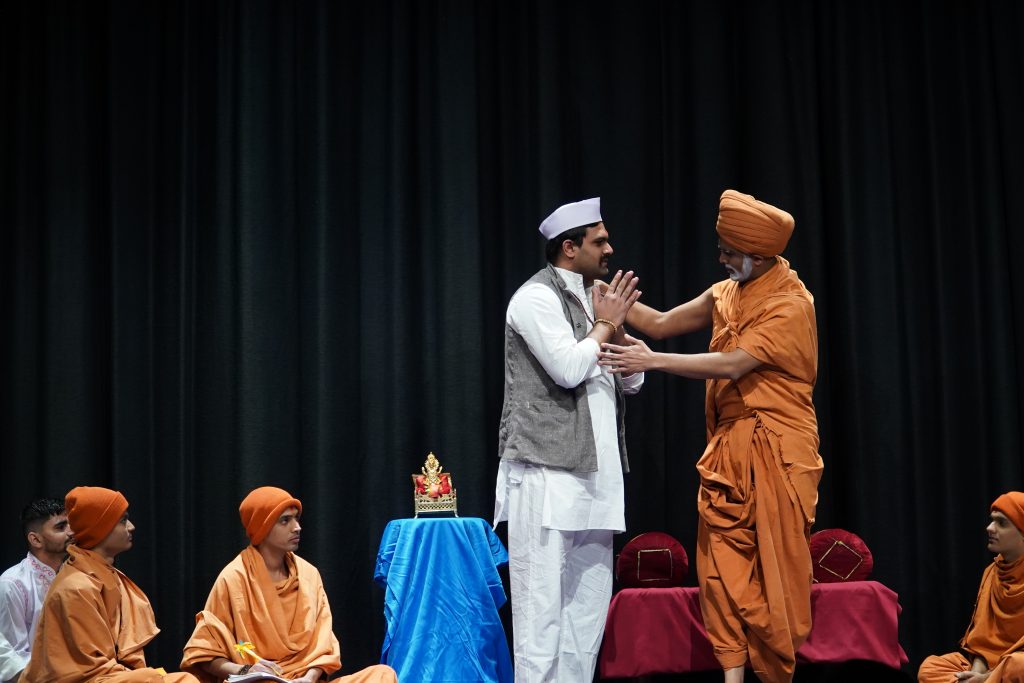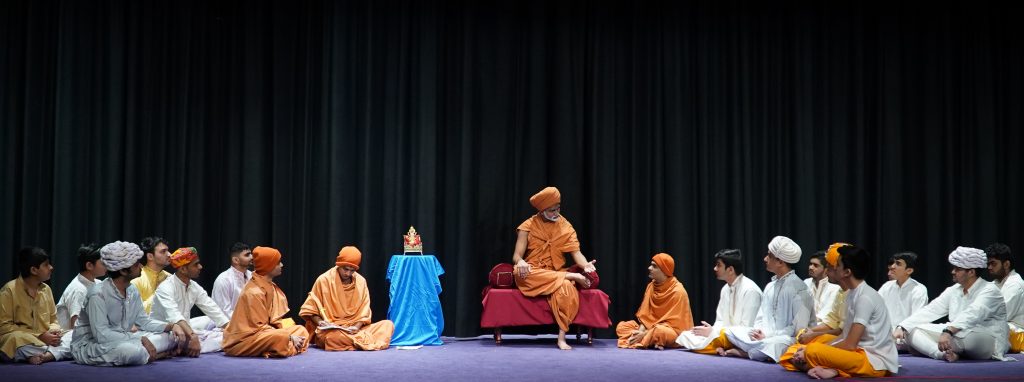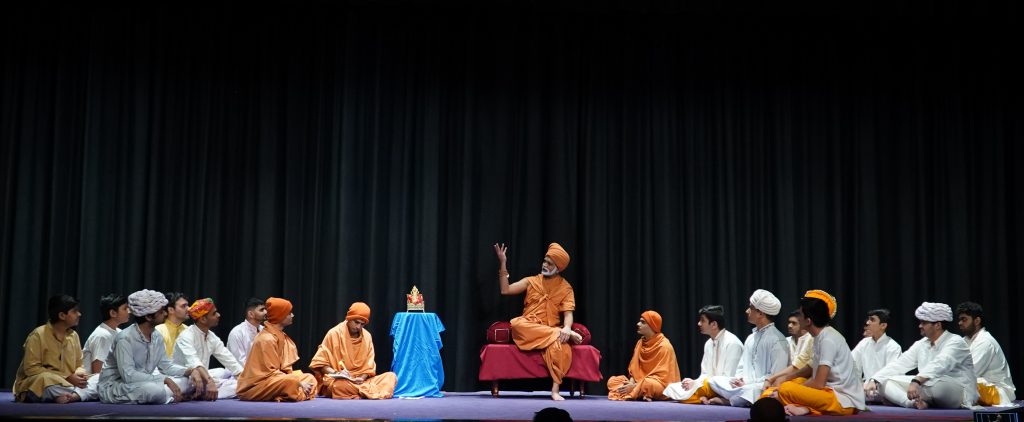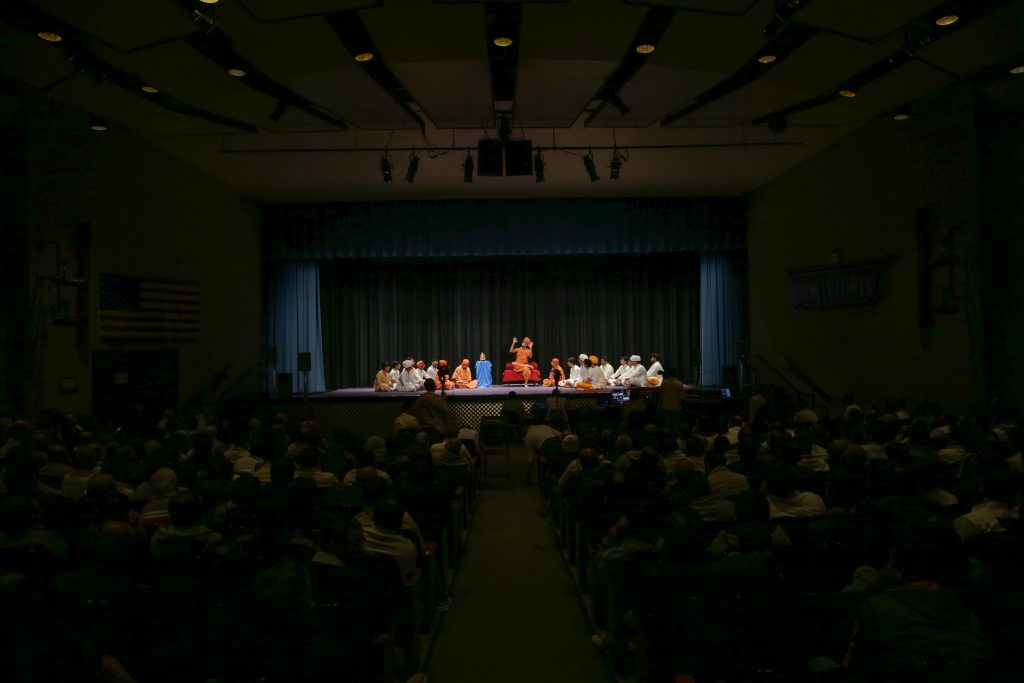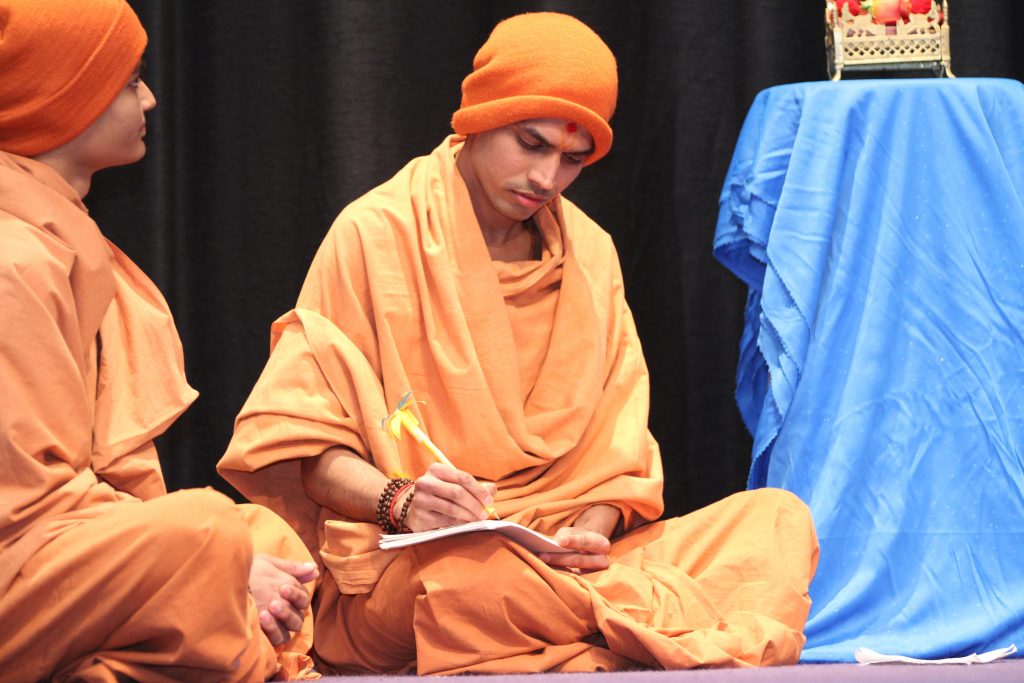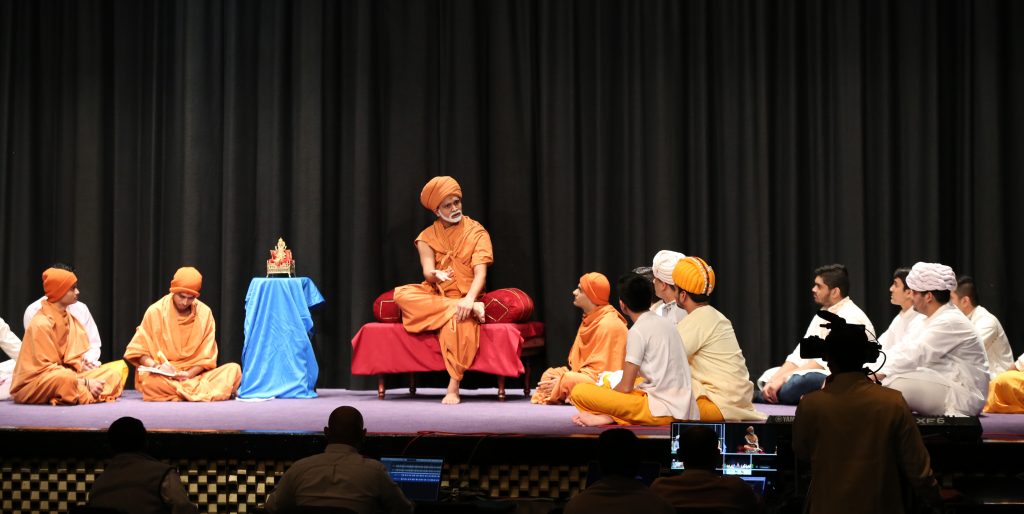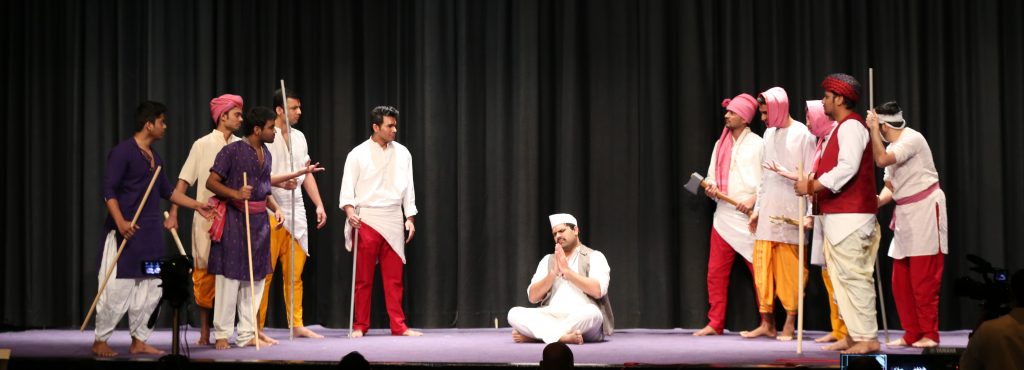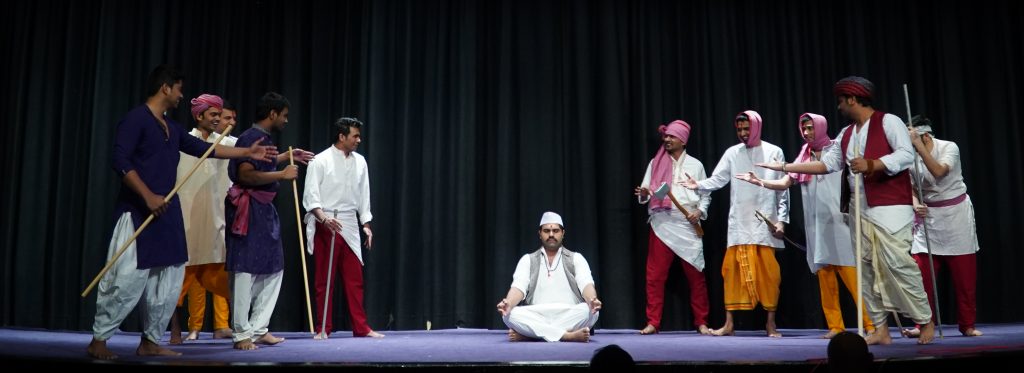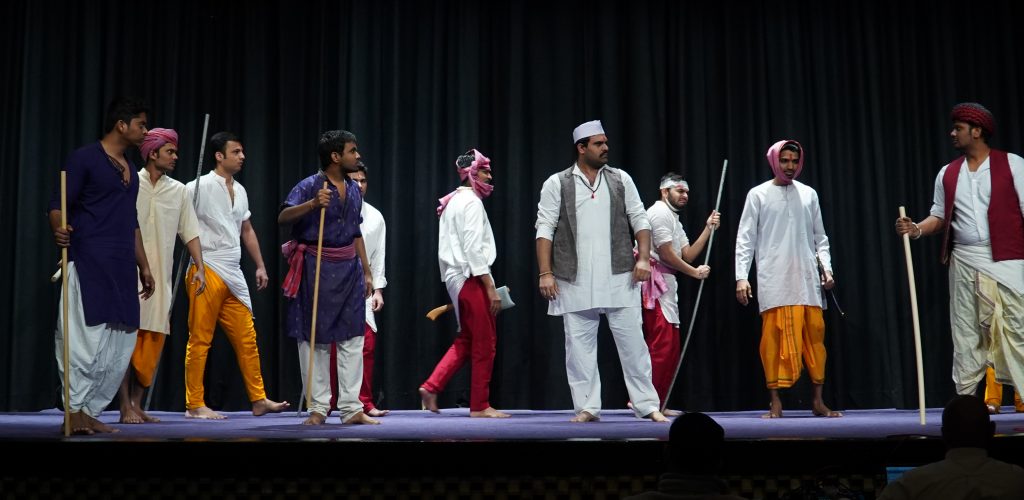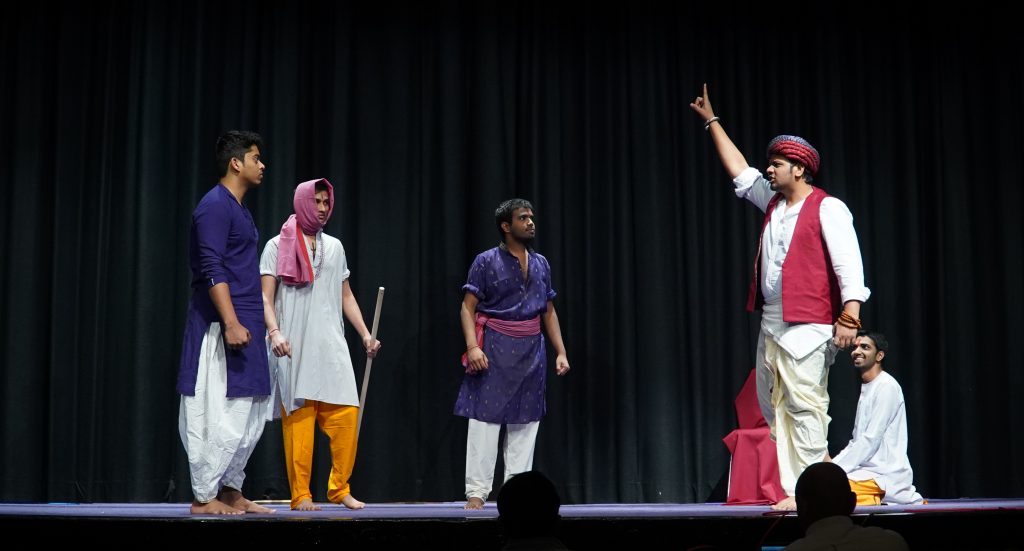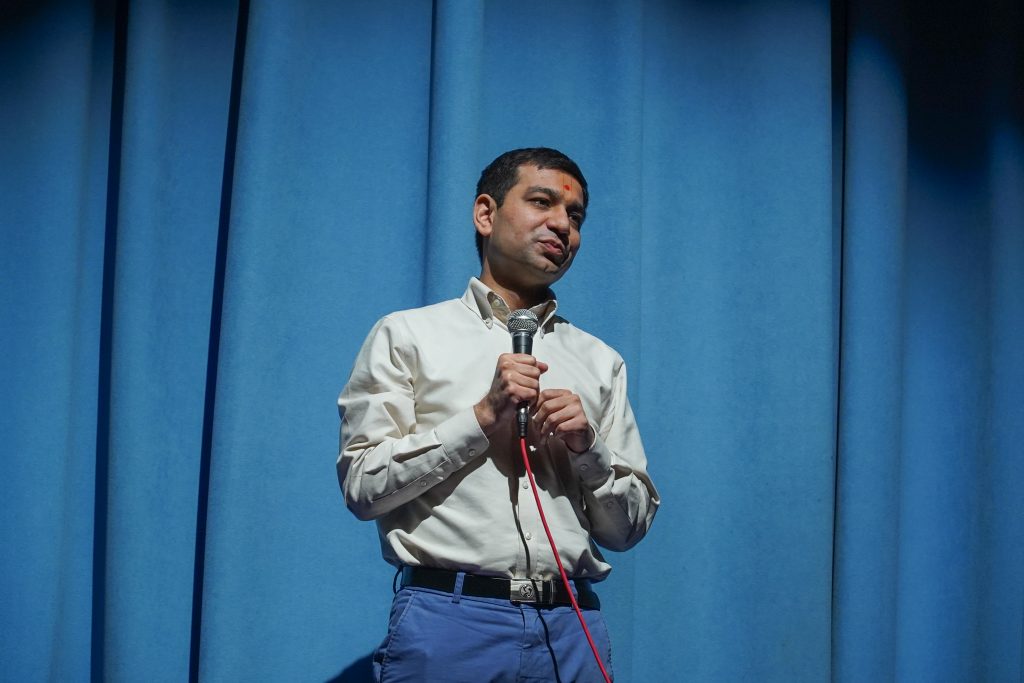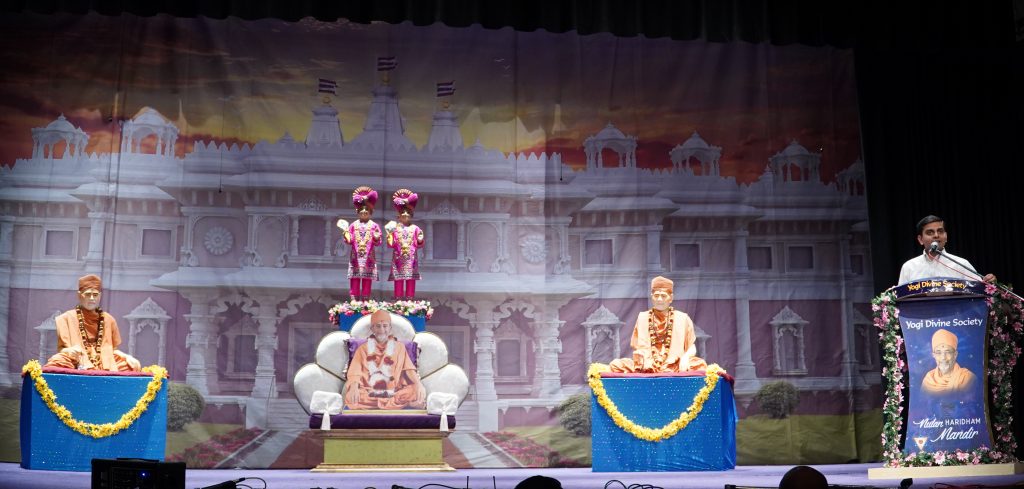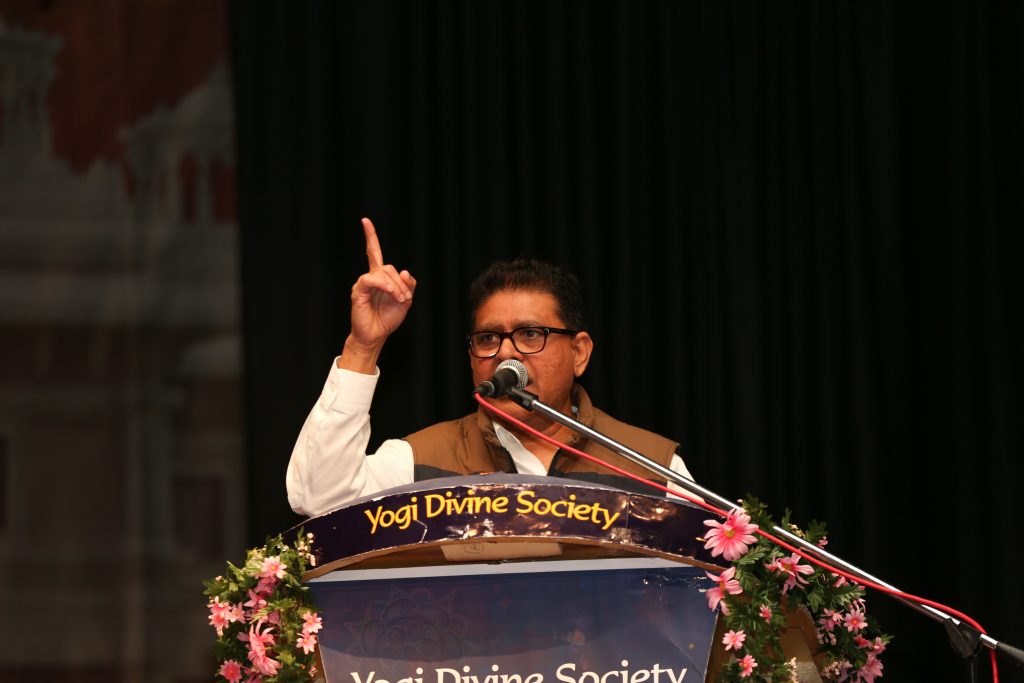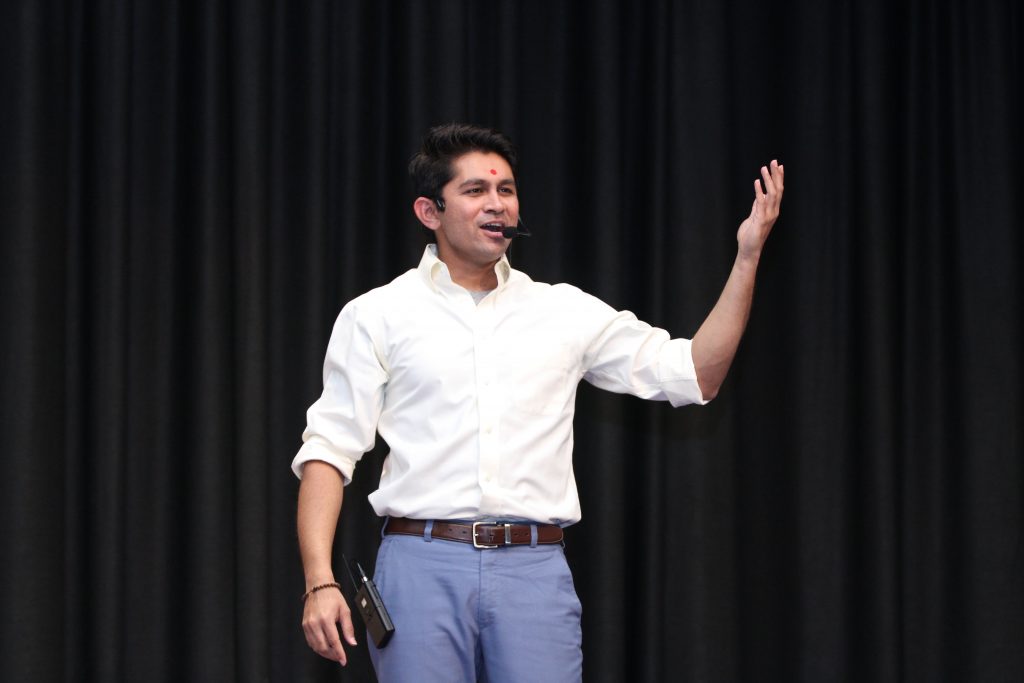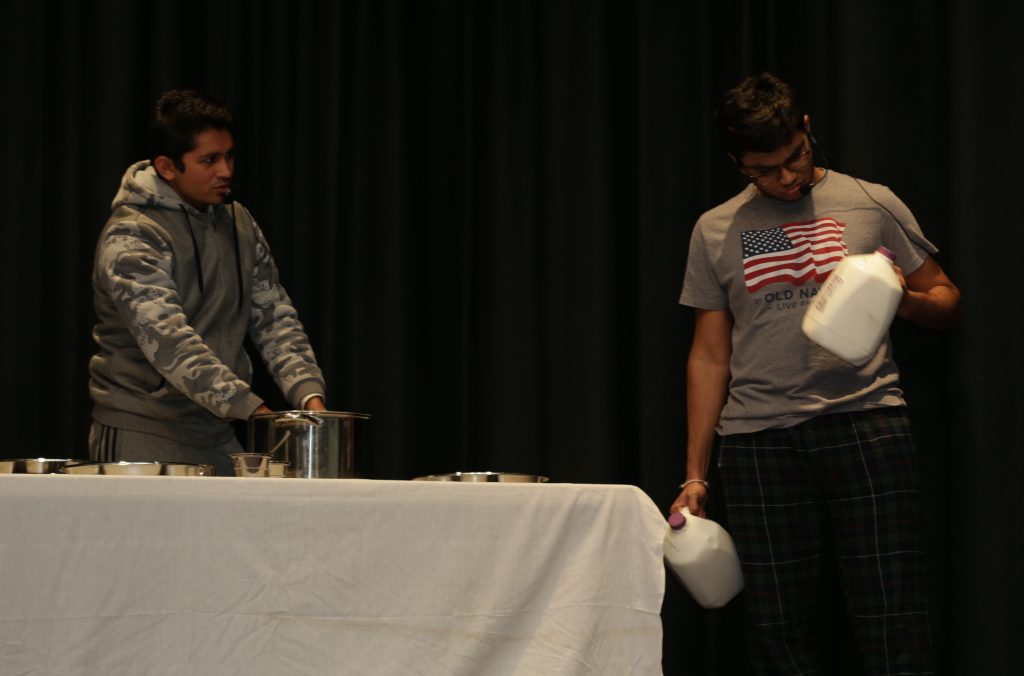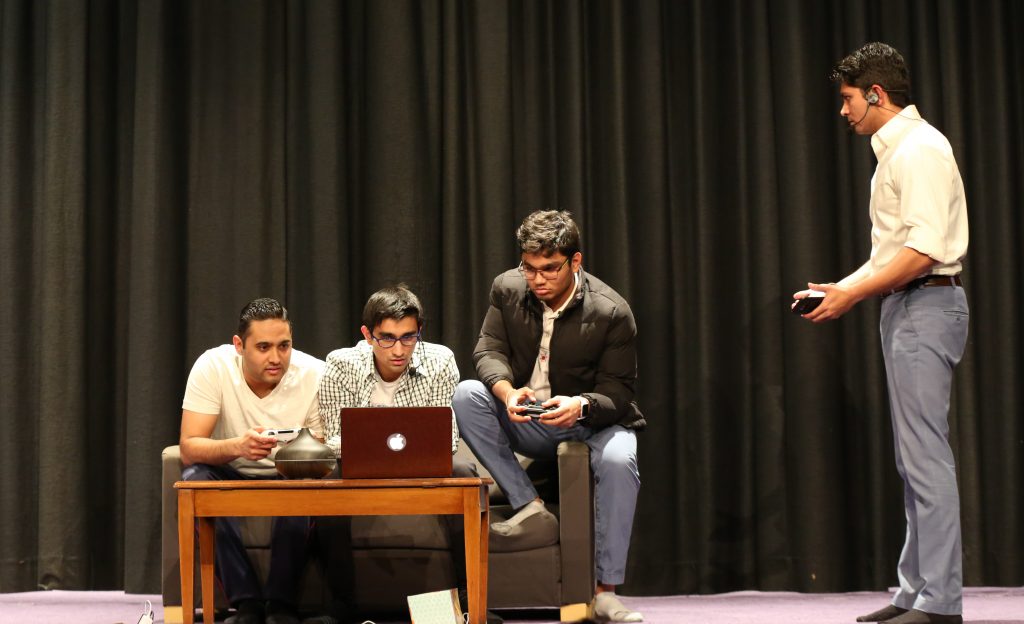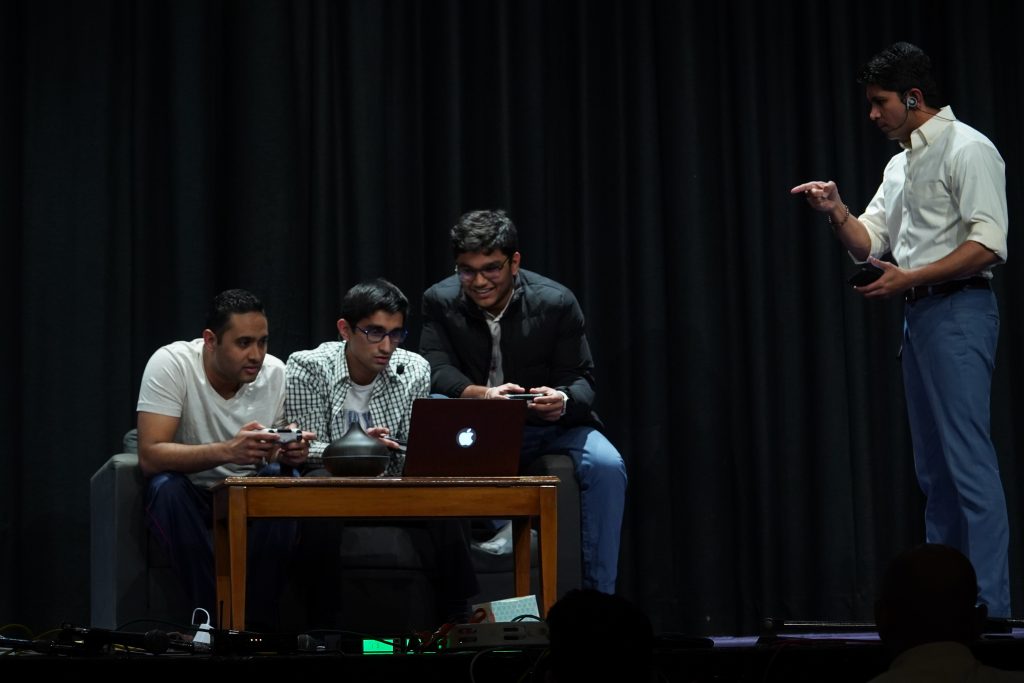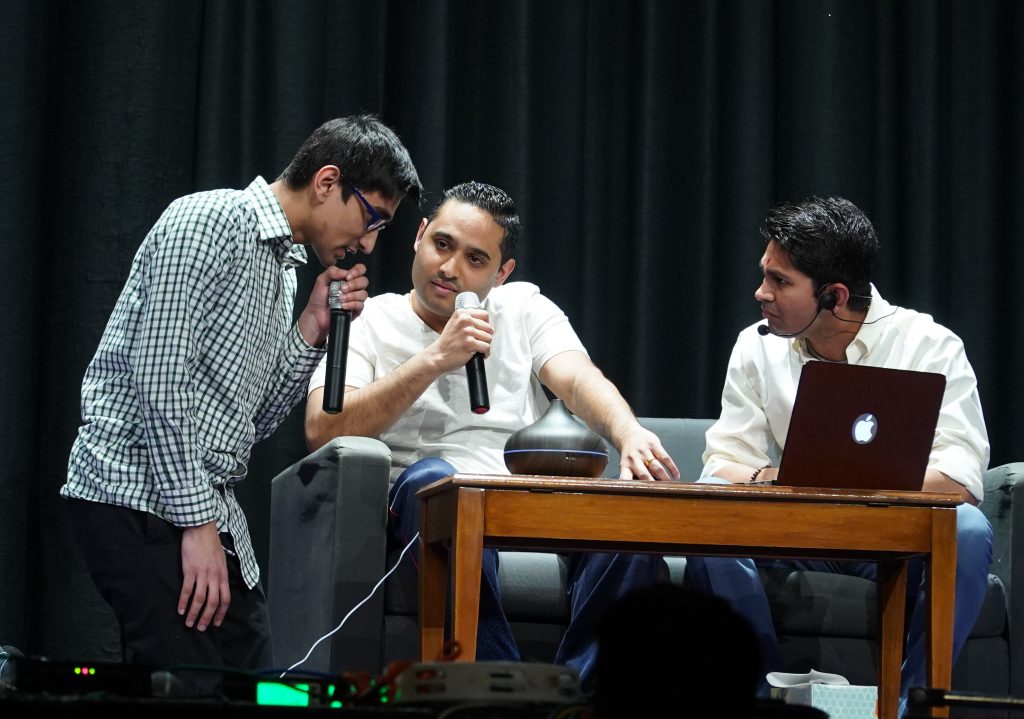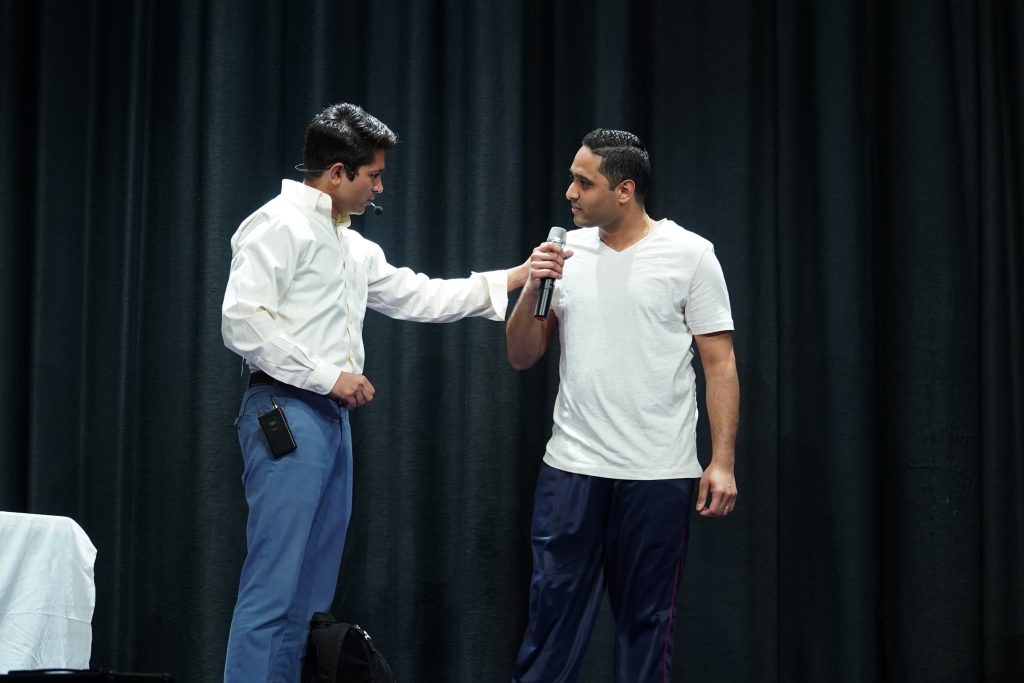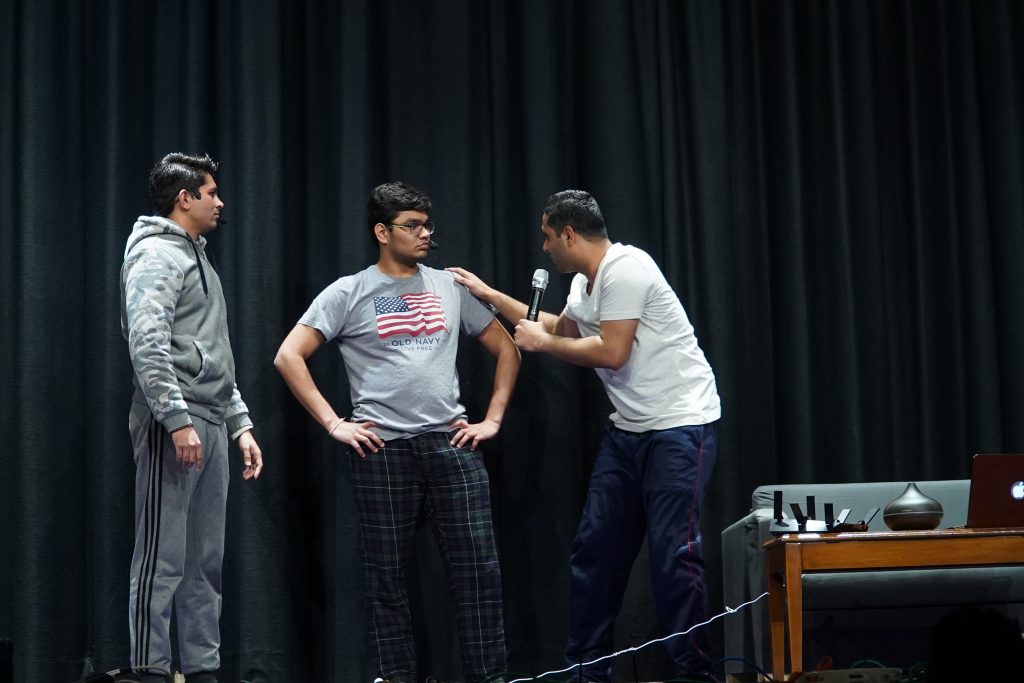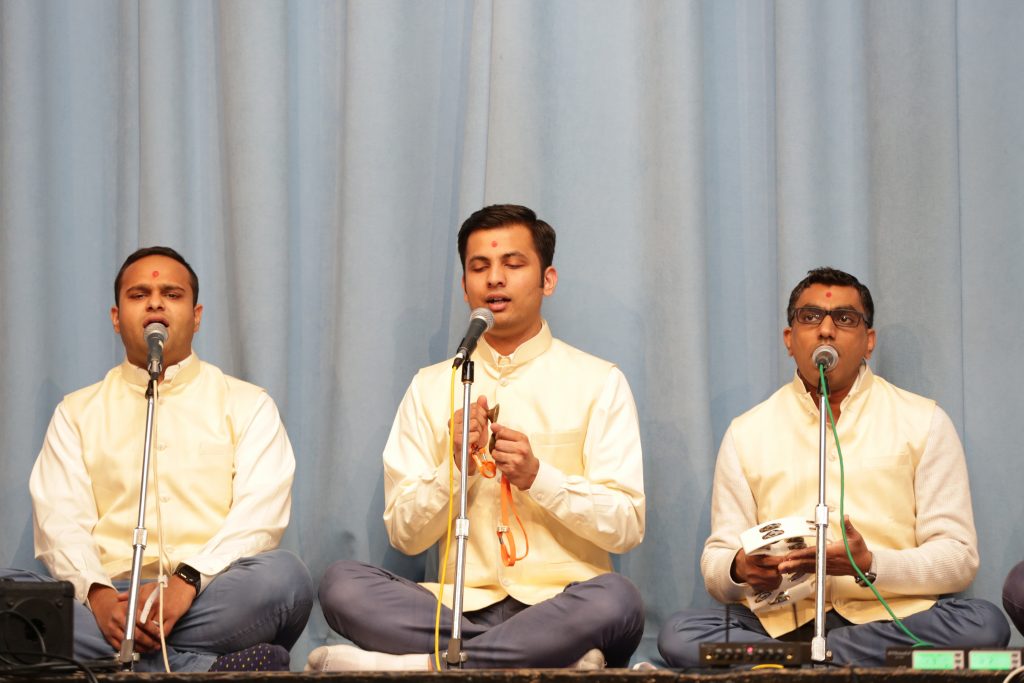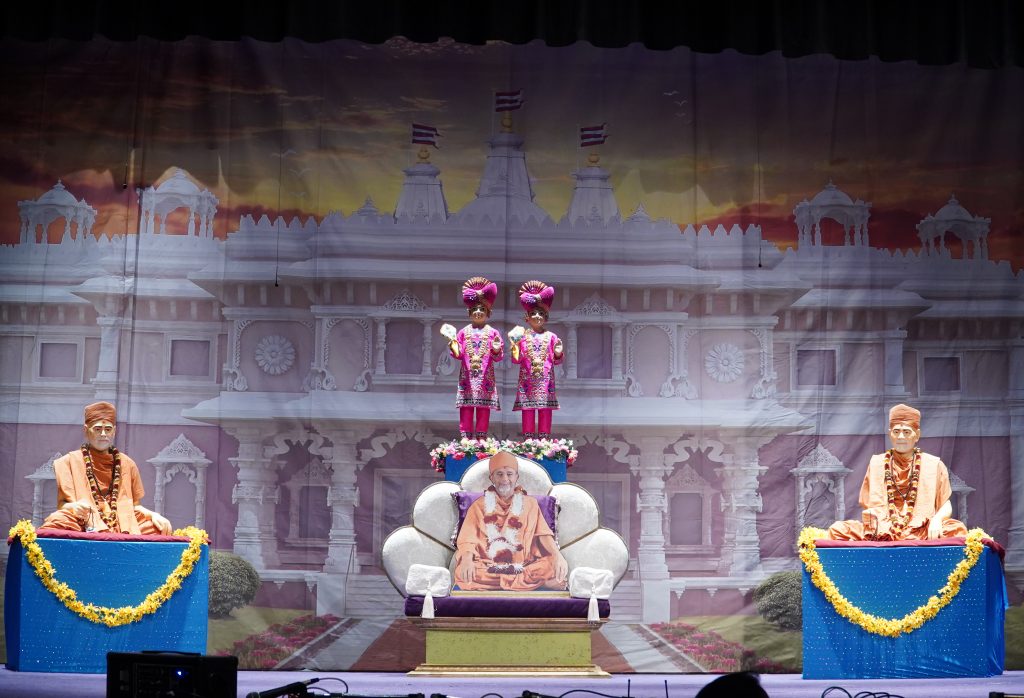On Sunday February 10th we celebrated Vasant Panchmi at the Parsippany Hills High School.
Vasant Panchmi is an extremely auspicious day for the Swaminarayan sampraday. 193 years ago, on this day, Bhagwan Swaminarayan gave us the Shikshapatri, which still serves as a guiding text for all devotees. Additionally, this was the day Shastriji Maharaj, the architect of the Akshar Purushottam Upasana, was born.
The host P. Sugneshbhai commenced the event by explaining the importance of the Shikshapatri stating that Bhagwan Swaminarayan gave a vardan (boon) saying that those who follow the Shikshapatri in its entirety would not suffer any hardships in their life.
Following the introduction, the Parsippany Mandal performed a drama highlighting the relevance of the Shikshapatri in this modern day and age. In the drama they covered three pivotal points from the Shikshapatri. First, they covered the importance of offering food to Bhagwan before eating. Bhagwan has blessed us with food to eat and the least we can do is offer that food to the Almighty as a token of our gratitude. Secondly, they covered how to develop a life without worries (nischinta) by having a Sant (Saint) in your life. A Sant not only helps us live a worry free life, but also guides us on our spiritual journey and keeps our senses positive. Lastly, they covered the importance of doing svadyay bhajan (self introspection and prayer) at night to repent for the mistakes we have made that day and to ask for the strength to not make those mistakes again.
Following the drama, Shantu Uncle spoke on the importance of the Shikshapatri and Shastriji Maharaj’s fundamental principles of Satsang: niyam (discipline), nischay (determination), and paksh (wholehearted support). He used the analogy of fastening your seat belt on a flight to show that following the Shikshapatri is the first step in our journey to Akshardham and the importance in easing the friction between others so that we can become Atmiya (harmonius) with each other. Shantu Uncle then spoke upon Shastriji Maharaj’s nischay, his firm resolve, to bring this message of Akshar Purushottam Upasana to everyone. He narrated the prasang where Shastriji Maharaj laid down in the middle of the irrigation system and told a devotee to shovel dirt on him so they could divert the water to the farm. Not for one second did Shastriji Maharaj think about his own body. Shastriji Maharaj could have easily had someone else do this seva, but it was his unshakeable resolve to do this seva that serves as a source of inspiration for us today.
Then the New Jersey Mandal performed a drama about Manibhai, a haribhagat in Shastriji Maharaj’s time. His seva was to single handedly protect the mandir’s farmland. Since he started that seva, no one had been able to steal produce and many thieves were beaten up by him. These thieves had enough of Manibhai, so one day they banded together to kill him. Upon confronting him, Manibhai asked if he could pray to Shastriji Maharaj before they did anything. They agreed and he sat down and started doing bhajan. He thought that whatever happens is due to Shastriji Maharaj’s wish and that if Maharaj wanted him to die then he was prepared to die. However, he prayed that should not let them cut his nose and publicly humiliate him. After a while, these thieves had a change of heart. The leader of the thieves said, “This guy is only protecting the land for the mandir. We shouldn’t kill him because that would look very poorly on us.” Then they dispersed before Manibhai finished bhajan. Immediately, Manibhai went to the temple to see Shastriji Maharaj. Shastriji Maharaj greeted him and said that Bhagwan will never let a Haribhagat’s (devotee’s) nose get cut off.
Manibhai kept Bhagwan’s paksh in the direst of times. So how do we keep paksh with Bhagwan? There are two ways we can keep paksh. First, if we don’t know how to do something or are unable to do something, do bhajan and remember Bhagwan before looking for a solution. Second, follow Bhagwan’s agnas (instructions) even if they logically don’t make sense.
The Samayo finished up with a video discourse by Swamiji. He said that there are two different paths toward salvation. One involves lots of hard work and excessive discipline while the other involves being saral (honest and open) in our relationship with a Sant. Some of the benefits in being saral are increased positivity, wisdom, and purification of the senses. Saralta is one of the greatest virtues because our journey toward Bhagwan becomes so much faster.
The Sabha was followed by the Aarti after which all devotees enjoyed a delicious dinner.

